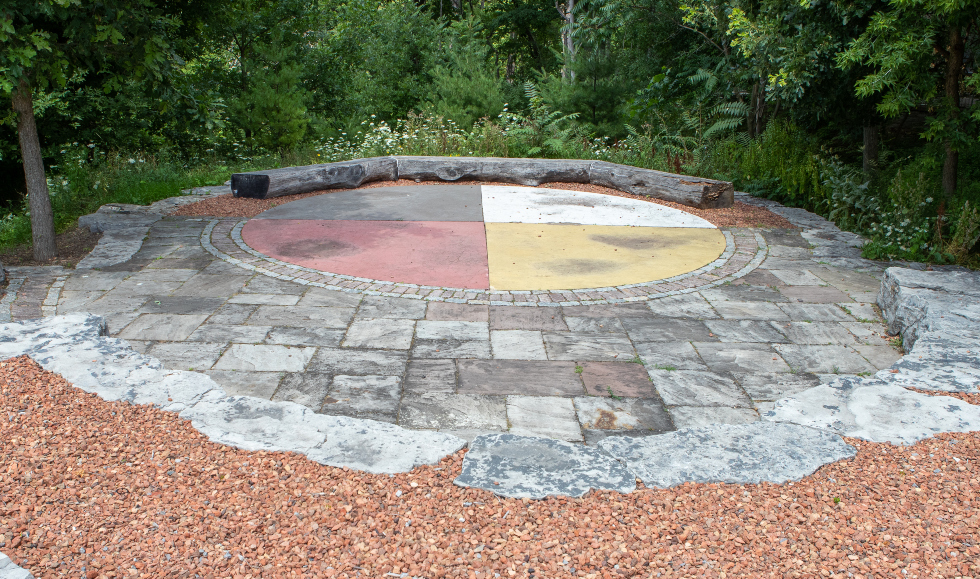Council of Ontario Universities releases results of Indigenous faculty survey

The Indigenous Circle -- Karahakon Kateweienstha (Learning in the Forest) in Mohawk, and Nibwaajkaawin Teg (Place of Wisdom) in Ojibway--was created under the guidance of McMaster’s Indigenous Education Council as a space for learning, reconciliation and the remembrance of Indigenous people and the histories of this land.
A few days shy of the fifth anniversary of Canada’s Truth and Reconciliation report, the Council of Ontario Universities has released the results of a survey designed to capture the experiences of Indigenous faculty in the province’s universities.
Lighting the Fire: Experiences of Indigenous Faculty in Ontario Universities includes responses from 86 faculty members across Ontario that provide data on a variety of topics, including leadership roles, formal and informal work such as mentoring or sitting on committees, and teaching and research approaches and experiences.
“Exploring the ways in which Indigenous faculty and scholars are experiencing issues is assisting us in identifying required supports to ensure these same faculty members can support and drive the agenda of decolonizing and Indigenizing our campuses,” says Janice Hill, co-chair of the Ontario Council of Academic Vice-Presidents and the Reference Group on Aboriginal Education Joint Working Group, which initiated the report.
The report incorporates seven calls to action for universities to support Indigenous academics and encourage Indigenization of campus spaces, curriculum and approaches to teaching and research. Specific recommendations include continuing support for anti-racism work, developing robust mentorship programs for Indigenous faculty, and aligning policies of institutional research ethics boards with federal policies.
“The findings from this survey and its recommendations and our ongoing partnership and collaboration with our Indigenous colleagues at McMaster will help inform our ongoing work in supporting Indigenous education, research and other activities at the university,” says Susan Tighe, McMaster’s provost and convenor of the university’s Joint Indigenous-Administration Consultation Group.
“We look forward to continuing to work together, through the Joint Indigenous-Administration Consultation Group and the Indigenous Education Council, to further advance Indigenous issues within the McMaster community.”
McMaster’s Indigenous Education Council (IEC), which includes members from McMaster and local Indigenous communities, promotes and advocates for advancing Indigenous education at McMaster, champions Indigenous staff, students and faculty members, and provides advice and support to the university on Indigenous matters.
The McMaster Indigenous Education Council is currently engaged in developing an Indigenous Research and Education Strategy.

